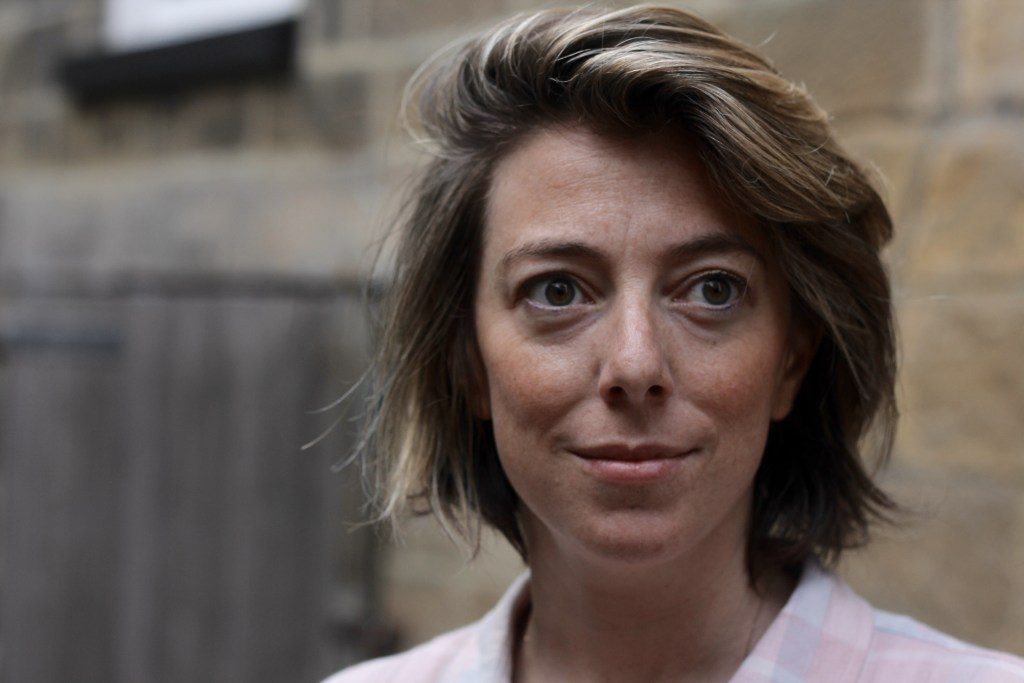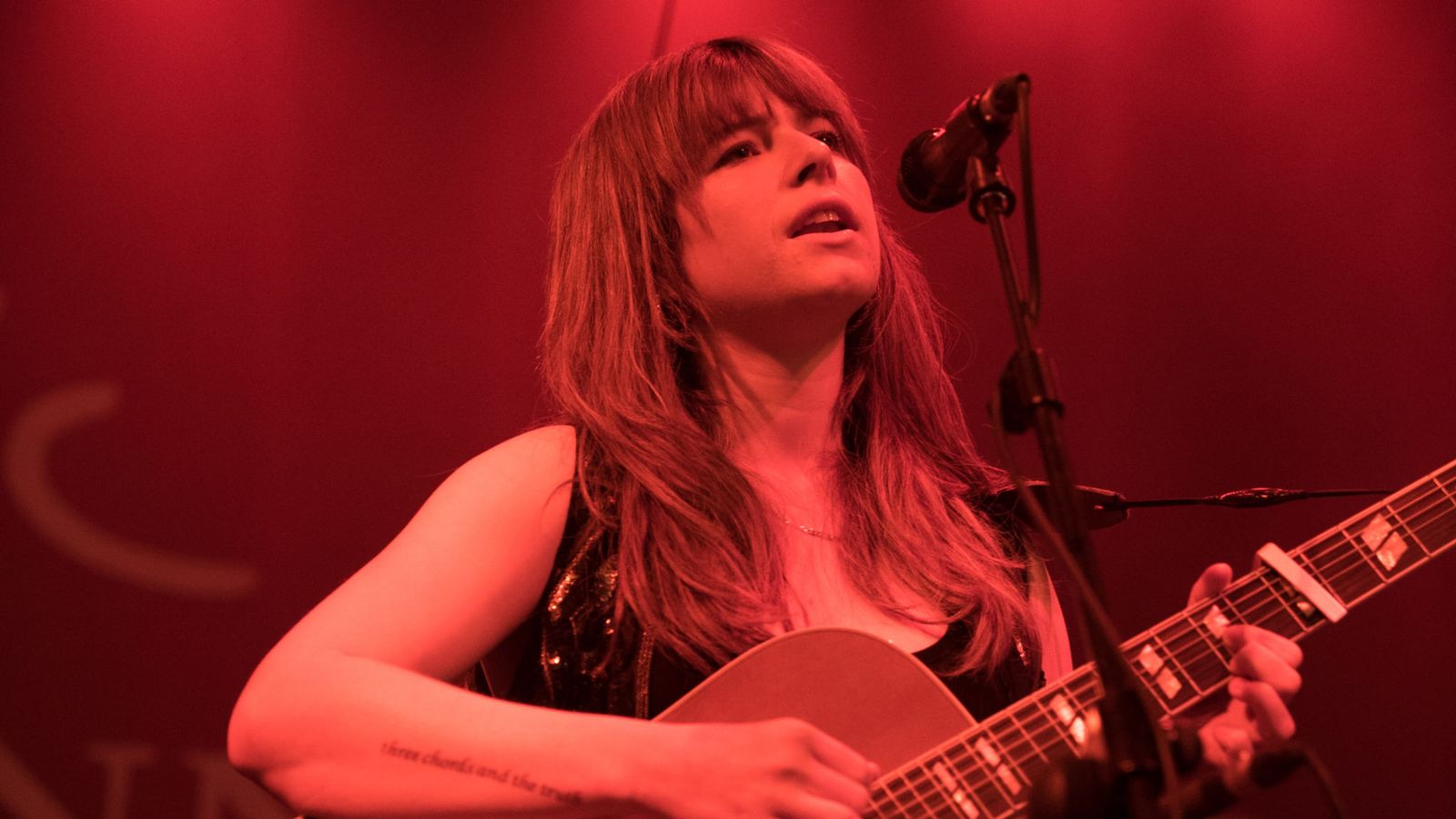Screenwriter Nicole Taylor hails from Glasgow, where her new film “Wild Rose” takes place. A huge fan of country music, her film, directed by Tom Harper, is about a burgeoning country singer grappling with being both a mom and a daughter. Jessie Buckley plays Rose-Lynn Harlan, who wants to have it all, despite multiple setbacks. “Wild Rose” is a deep exploration of her relationships, especially those with her mother (played by Julie Walters) and young children, and the choices women make.
This marks Taylor’s first feature film. She also wrote the BAFTA-winning BBC miniseries “Three Girls,” for which she won a BAFTA and a Royal Television Society Award. Her other credits include BAFTA-nominated TV movie “The C Word” and episodes of series such as “The Hour” and “Secret Diary of a Call Girl.”
Women and Hollywood spoke to Taylor about what country music means to her, how it inspired “Wild Rose,” and how women are responding to the film.
“Wild Rose” is now playing in New York and Los Angeles. It will expand to other cities in the coming weeks. Find screening info here.
This interview has been edited.
W&H: What does it mean to be involved in a film for and about women?
NT: It feels great. [“Wild Rose”] smashes the Bechdel Test and I’m really proud of that, but it’s not something I thought deeply about when I was writing it. All of my work is about women. It’s just what feels natural to me to write about. It’s also consciously what I’m interested in, so it pleases me that people think that “Wild Rose” is a feminist film, in a quiet way.
W&H: As a mother, I was really impacted by this film. It hits home in so many ways. The song lyrics “When I reach the place I’m going / I’ll surely know my way” were very powerful. Is any part of the story autobiographical for you?
NT: I’m from Glasgow myself, and I’m crazy about country music and have been all my life. At times, that’s been a lonely thing for me, as it is for Rose-Lynn. It’s not exactly a very popular thing over here. It’s quite a peculiar thing to be interested in. I always write about things where there’s a question for me at the heart of it, like I want to find something out or think about something more.
I wanted to write about what someone in Rose-Lynn’s position “deserves.” I hadn’t become a mum yet, and I thought about how talented she is and wondered if that talent was a trump card, and does it mean that you can bypass ordinary responsibilities? Or does it mean that once you become a mum, no matter how talented you are, do you have to settle down and make your kids a priority? That was central, at the heart of this story.
W&H: What inspired you to write this particular story with country music as your storytelling vehicle?
NT: I really wanted to write a character who is extremely emotionally inarticulate. Not only can she not express how she feels, but she also doesn’t know how she feels. She’s quite chaotic but through country music, she becomes coherent to herself. Country music has that particular cathartic effect on me and to other Scottish people. It is quite popular in places you wouldn’t expect it to be popular, in places where people are not great at expressing their feelings.
W&H: You touch on so many significant relationships in the main character’s life. Mother-daughter — her own mother, her own daughter — and the songs really illustrate the feelings they are experiencing in the film. You wrote some of the songs with Jessie Buckley, who plays Rose-Lynn. What was that collaboration like?
NT: Jessie and I, and another two musicians, wrote some of the songs. But the real banger is the song “Glasgow” at the end. It was co-written by the actress Mary Steenburgen.
W&H: How did that relationship come about?
NT: It was so weird and so lucky. I had written a brief for songwriters because we knew we needed the last song. It got sent to music publishers in Nashville, and we got several songs back. One was really heads and shoulders above the others. I soon learned that everyone had read my briefing note and that Mary had asked for the script.
I really felt the benefit of having her write it. She’s an unbelievable actress, and she really understood the film. She wrote the song with two experienced writers and we got the perfect tailored song for the movie.
W&H: How did you decide to write about daughters in particular?
NT: The thing about writing about daughters, and this is something I’ve definitely experienced, is that women of my generation are living completely different lives than their mums had. That can feel on the mum’s part like a complicit rejection of everything they stand for.
I feel like I had so many more opportunities than my mum ever had. She left school at 15. I’ve gone on to do this for a living. Leaving Glasgow and everything that she showed me can create tension. That’s common for any woman my age. That isn’t something I’ve seen explored very often on screen. We just don’t talk about these things, but I want to.
W&H: The character of Rose-Lynn is very conflicted about her role in her children’s lives and as a daughter herself with her own mom. Your story really gives her clarity. Can you please talk about her evolution and what it was like to create her?
NT: For every character I’ve ever written, she’s the one that burst into my mind almost fully formed. I just knew her straight off and it felt more like transcribing the words of a real person. I think that’s why I stuck with this film for so long. It was my first feature. I was busy doing other work, but I found her so compelling. I kept hearing her voice. I didn’t always know what the story was about when I was writing it. I just knew I had this girl. This was someone so desperate to be seen, and her mum only sees her partially, as she only sees her as a fuck-up. Rose-Lynn’s quest is about reconciling different aspects of her character and her needs.
Even in my own experience, you can’t create anything while not being yourself. You have to marry all these things together if you’re going to write authentically. That’s what country music is all about. It’s an art form that’s informed by a particular place. She’s not from Nashville, she’ll never be from Nashville, she’s not an American. She has to find a way to accept that.
W&H: Let’s talk about the female cast in the film. They each seem to embody their characters.
NT: Jessie Buckley is a pure spark of light. We wouldn’t have anything without her. She just is Rose-Lynn. As soon as I looked at her, I couldn’t believe we found anyone who could sing as well as she could. Julie Walters: I have wanted to write for her all my life because nobody does undigested emotion like Julie Walters. She was just perfect for that part. I loved Sophie Okonedo in her role. She brought something that wasn’t necessarily on the page which was warmth and geekiness which made her character really endearing. That part could have been a cold English character and she wasn’t like that at all.
W&H: What kind of feedback have you had from women who have seen the film?
NT: That’s been the best part of making this film. Seeing women crying in the cinema and coming up to hug me and people taking their mums. My own mum has seen it 100 times and is a wreck every time.
W&H: I know that you’re based in the UK. Do you feel that more female-driven films are being made like the ones you care about in 2019, in the dawn of #MeToo and #TimesUp?
NT: That must be true. I feel like I’ve been so lucky, and I’ve always really written what I want to write about and that is absolutely women-driven. For me, there’s nothing revelatory except that there’s more for me to watch.
At the beginning of this movement, I was sent loads of pitches by male producers trying to get a jump on the bandwagon of “strong” female characters. The idea that this was somehow a genre to have a female-driven film or piece of television, I find so ridiculous because we’ve been doing it for so long. It feels like a good moment.








